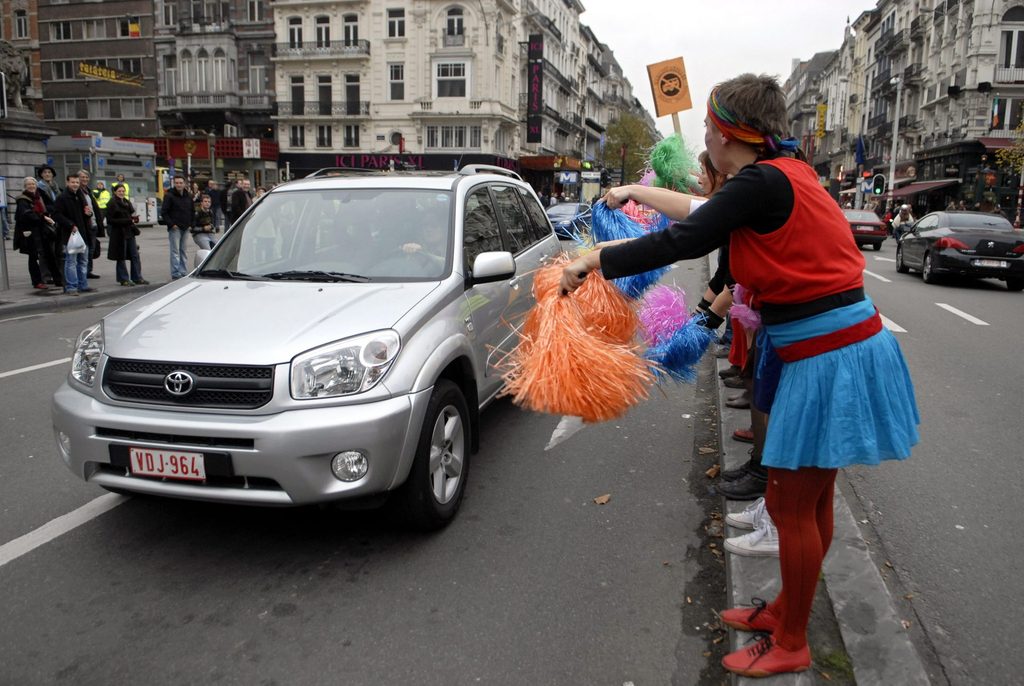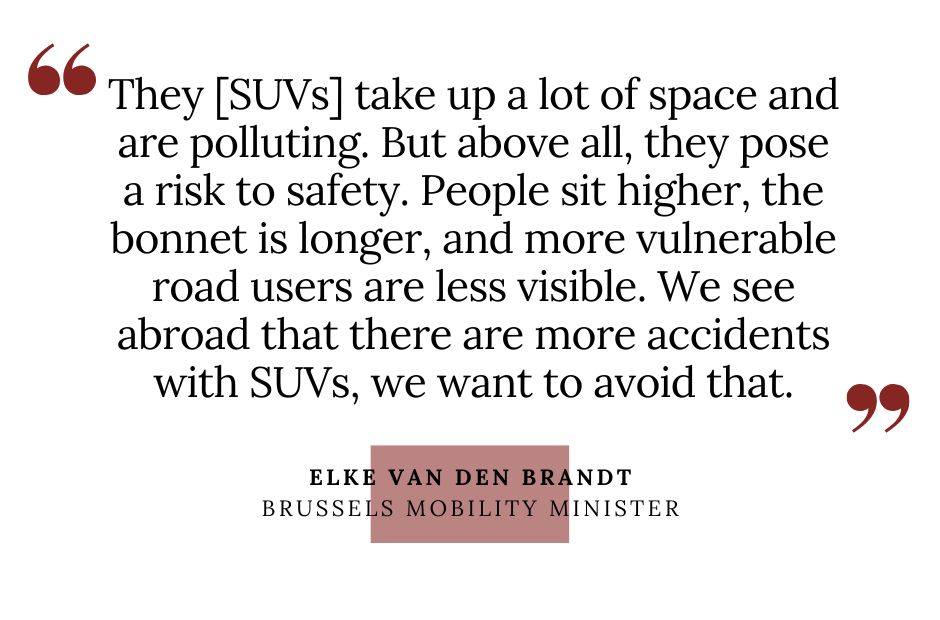Sports utility vehicles (SUVs) have long been ubiquitous in cities, the large 4x4s first designed for rugged off-road adventures now the weapon of choice for the school run, the milk run, or maybe to drive to the park to go for a run.
But despite being championed for their practicality, the heavy vehicles are grossly inefficient in the urban context, occupying considerable road space, polluting heavily, and proven to be significantly more dangerous to pedestrians, both on account of their size which makes them less nimble, and their mass which makes the consequences more serious when involved in accidents.
In light of these realities, the Brussels-Capital Region has called for a study to consider measures to reduce SUVs in the city. The decision follows a similar measure in Paris which from 2024 will require SUV drivers to pay more to park in the city.
"They take up a lot of space and are polluting. But above all, they pose a safety risk," Brussels Mobility Minister Elke Van den Brandt said. "People sit higher, the bonnet is longer, and more vulnerable road users are less visible."
Too big to ignore
Van den Brandt stated that Brussels wants to avoid the rising number of accidents involving SUVs.
"Several options are being considered on how to reduce the nuisance. The study will map how many SUVs are driving in the region and then look at the possible measures."
The exact surcharge that drivers of SUVs will have to pay to park in Paris is not yet known but the size and weight of the vehicle and the engine will be determining factors. The French cities of Lyon and Grenoble have also announced similar plans to make SUV drivers pay more for parking in urban areas.
In Brussels, a range of options are being considered, from banning the vehicles around schools to more extreme measures such as banning SUVs from urban areas completely.
First Brussels, then Belgium?
The Brussels region already has some measures against bigger cars. In Ixelles, for example, residents pay more for their residents' cards if their car is longer than 4.9 metres.
But whilst the capital has made reducing vehicles central to public policy, particularly with the divisive Good Move traffic plans, other Belgian cities have come out in opposition to efforts to cap vehicle sizes. Antwerp councillor for mobility Koen Kennis is clear: "I'm not going to determine which car residents can or cannot buy."
Mobility expert Kris Peeters sees the fact that Brussels is driving the study as a good thing but stressed the need for which vehicles would be categorised under the term SUV, as there are other large models of cars that would not technically be classed as an SUV.
Related News
- Vigilantes or vandals? 'Tyre extinguishers' target Brussels SUVs
- Pressure group deflates tyres of 40 SUVs in Ghent
Peeters also called attention to certain social factors that determine the size of a car. For instance, a bigger car is justifiable for a family whereas an individual driving a "muscle car" is clearly less so. He asserts that cities need to have balance in introducing the measures.
Van den Brandt stated that these factors will be included in the study, which the Brussels Mobility and Brussels Environment are working on. The final report is expected at the end of the year.


